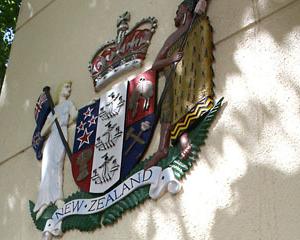The museum was abuzz with a hive of educational activities, including a bee feeding station, leaf litter, worm composting and informative games.
"Today we have already had 1300 people through the door and it’s only 3pm — we still have two events to go,” museum marketing co-ordinator and Wild Dunedin volunteer Charlie Buchan said.
“Since Wild Dunedin Festival began last Friday, we have had over 10,000 visitors through the museum. It has been amazing to see so many smiling faces. The vibe is ecstatic."
The event was mostly run by a handful of University of Otago students and other volunteers from the Otago branch of the Entomological Society of New Zealand.

Bug Day co-organiser Connal McLean said the event was a good opportunity to educate the public on those messages.
"In one way or another, almost all life on Earth relies on bugs," he said.
"In terms of pollination, a lot of our flying pollinators are bugs. They provide an estimated one third of every human mouth with food."
Bees were a "really charismatic animal" and easy to engage the public with, he said.
One native bee in particular, Leioproctus fulvescens, had quite the reputation, being named the 2023 Bug of the Year.

"They’re a really essential part of our ecosystem. We want to be able to celebrate it and let folks know that they are endangered and its our responsibility to make space for all insects."
It was important to give children permission to learn more about bugs and expose them to bugs in a safe environment, Ms Lau said.
The children were really engaged with the event, asking questions about gardening and talking to volunteers about their bug collections.
Advertisement








